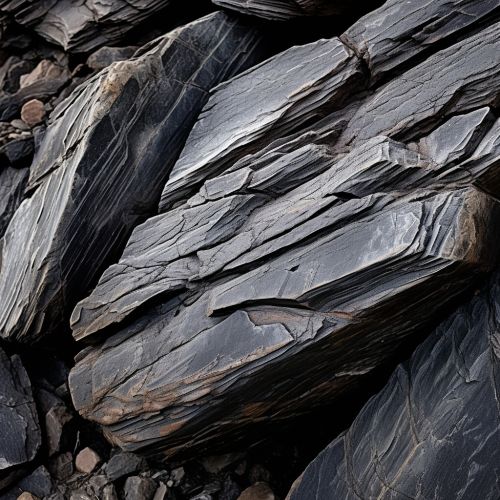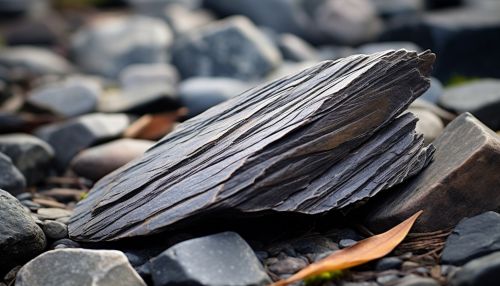Schist
Introduction
Schist is a medium-grade metamorphic rock with medium to large, flat, sheet-like grains in a preferred orientation (nearby grains are roughly parallel). It is defined by having more than 50% platy and elongated minerals, often finely interleaved with quartz and feldspar. These lamellar (flat, planar) minerals include micas, chlorite, talc, hornblende, graphite, and others. Quartz often occurs in drawn-out grains to such an extent that a particular form called quartz schist is produced.
Formation
Schist forms at a higher temperature and has larger grains than phyllite. Geological foliation (metamorphic arrangement in layers) with medium to large grained flakes in a preferred sheetlike orientation is called schistosity. The names of various schists are derived from their mineral constituents. For example, graphite schist is a schist which contains a high proportion of graphite.
Types of Schist
Schist is classified based on the minerals they consist of. The types of schist are biotite schist, garnet muscovite schist, graphite schist, green schist, hornblende schist, mica schist, and talc schist.
Biotite Schist
Biotite schist is a type of schist dominated by the mineral biotite mica. It is generally dark in color and often contains significant amounts of iron and magnesium.
Garnet Muscovite Schist
Garnet muscovite schist is a type of schist that contains significant amounts of garnet and muscovite mica. It is often used as a decorative stone due to its sparkling appearance.
Graphite Schist
Graphite schist is a type of schist that contains significant amounts of graphite. It is often used in the manufacture of pencils and as a lubricant.
Green Schist
Green schist is a type of schist that gets its green color from the presence of green minerals such as chlorite, serpentine, and epidote.
Hornblende Schist
Hornblende schist is a type of schist that contains significant amounts of the mineral hornblende. It is often dark in color and can contain other minerals such as quartz and feldspar.
Mica Schist
Mica schist is a type of schist that contains significant amounts of mica. It is often shiny and flaky in appearance.
Talc Schist
Talc schist is a type of schist that contains significant amounts of talc. It is often soft and can be easily cut with a knife.
Uses of Schist
Schist is not a rock with numerous commercial uses. Its ability to split into thin layers along the plane of schistosity makes it a good roofing material, and it is also used for decorative garden and wall cladding.


